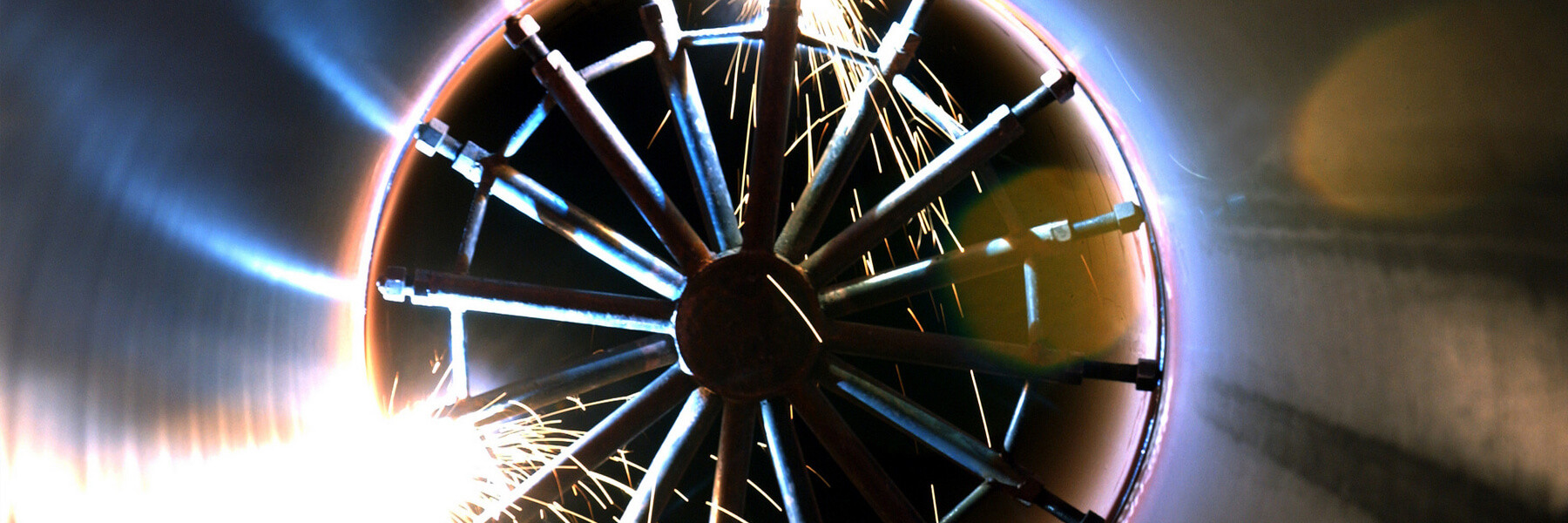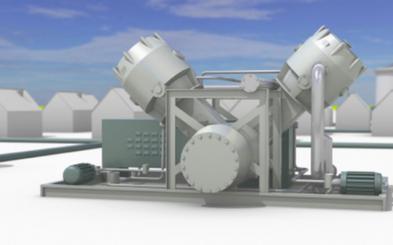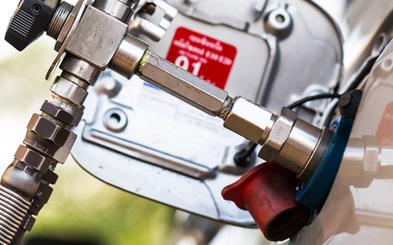INNOVATIVE PROJECTS PLATFORM

Technology
The natural gas industry in and around Europe is going through a period of unprecedented change. Investment into R&D pilot and demonstration projects is essential as it creates the opportunity for new and improved technologies, which are vital in enabling the transition to decarbonization of the gas sector. ENTSOG Members (TSOs) are developing new and innovative technologies to offer sustainable solutions for the gas sector. These technologies focus on optimization of the grid usage, creation of digital layer connections and support decarbonization of the EU gas system. Please find specific examples in the list provided below.
Gasunie Transport Services
Greengas booster
Attero starts a pilot with Gasunie Transport Services (GTS) and Enexis for a large compressor (booster) that links the regional supply of green gas with the national demand. Attero wants to expand the production of green gas in Wijster, but it can not lose a larger production locally in the summer. In the summer period, the local demand for gas is low, while the production of green gas remains continuous. With the use of the booster, production can be fed throughout the year because the national network offers unlimited sales opportunities.
Contact:
Swedegas AB
Power to Gas
Swedegas has taken the initiative to develop Power to Gas in Sweden together with representatives from the Swedish energy industry. As part of a preliminary study, the conditions for Power to Gas were examined from a Swedish perspective. We are now planning to start up a pilot plant in Sweden.
Contact: hanna.paradis@swedegas.se
Snam Rete Gas S.p.A.
Compressed Natural Gas (Cng)
Thanks to a long-established and cutting edge technology, Italy is the first European market for natural gas for vehicles, with over 1 billion cubic meters consumed in 2016 and about 1 million vehicles currently in circulation. Snam believes in CNG as an alternative fuel for road transport and promotes a series of initiatives to foster the use of CNG on an even larger scale. Snam will invest around 150 million euros over the next 5 years to facilitate CNG-refueling-plant development. This will increase the number of existing methane gas stations, improve service quality, and ensure a more balanced distribution of stations througout the country.
Contact: Andrea.Ricci@snam.it
Gas Networks Ireland
ERVIA: Decarbonising Domestic Heating in Ireland (study)
Ervia, the parent company of Gas Networks Ireland, commissioned KPMG to develop and evaluate a number of scenarios for the decarbonisation of the one million Irish residential homes currently connected, or within close proximity, to the existing gas network.
Contact: Henry.Smyth@ervia.ie
Gasunie
Supercritical Water Gasification (SCW)
The SCW project in the Netherlands uses supercritical water gasification to convert wet biomass into sustainable energy and reusable raw materials. It is a multi-feedstock technology that can process multiple types of biomass. Additionally, the gas is produced at high pressure negating the high costs of Compression. Gasunie part of the team builduing this project.
Contact: m.j.w.m.c.theelen@gasunie.nl
Energinet
Biogas injection
Energinet has several projects nessecary for bringing biomethane to the high pressure grid. The technical solutions chosen are individually designed for all projects minimizing TOTEX and ensure high security for the grid to absorb the biomethane production, e.g. In low demand season (in summer season). The technical solutions also require implementing new kind of technologies (e.g. small compressors and deodorisation plants)
Contact: til@energinet.dk
Gasunie
Biogasnetwork Twente
In the biogas network in Twente, 'raw' biogas will be transported from producers to a reprocessing plant, where it will be upgraded to green gas. Cogas and Gasunie New Energy are developing the biogas network in Twente in a joint venture.
Contact: m.j.w.m.c.theelen@gasunie.nl
Open Grid Europe GmbH
Be smart build smart
The energy transition has consequences for all players in the market, and as a result costs have been rising. Individual stakeholders like Open Grid Europe are responding to this development in very different ways. Gas trading and storage, transmission capacities and, not least, costs: our video shows you what links up to what and how Open Grid Europe is attempting to counter the cost explosion resulting from the energy transformation with efficient products and intelligent solutions.
Contact: Helmut.Roloff@open-grid-europe.com
Gasunie
Ambigo
The project aims to make efficient biomass gasification applicable on an industrial scale. The installation will further investigate the MILENA, OLGA and ESME technologies developed by ECN and DRT. These technologies can convert biomass into renewable energy in the form of green gas with a very high efficiency (around seventy per cent) and without harmful environmental effects.
Contact:
National Grid
First Biomethane Connection
Biomethane has been connected from a farm in Cambridgeshire to the Gas National Transmission System (NTS) for the first time at the end of July 2020. Murrow Anaerobic Digestion Plant in Cambridgeshire operated by Biocow Ltd produces the renewable gas made from cattle manure and straw. The pipeline will support flows of up to 15,000 standard cubic metres per hour, enough for the annual gas consumption of 10 average households every hour.
Contact:



